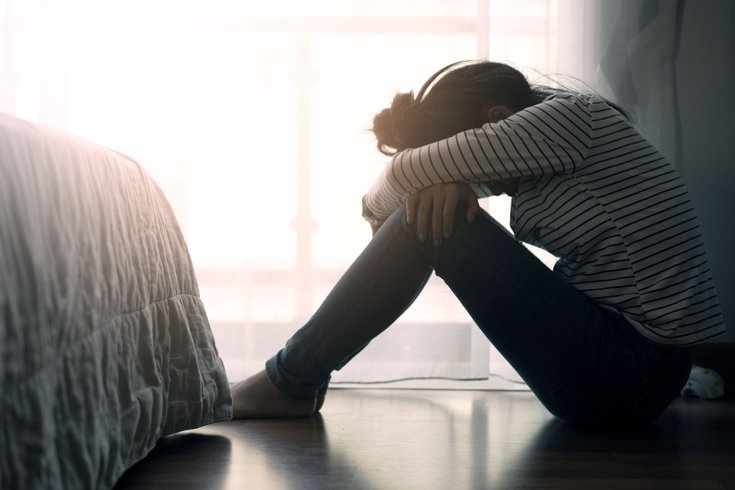
August 11, 2023
 Source/Image licensed from Ingram Image
Source/Image licensed from Ingram Image
Suicide deaths in the United States reached 49,449 in 2022, the highest number ever recorded, according to provisional data published by the Centers for Disease Control and Prevention.
More than 49,000 people died by suicide in the U.S. in 2022, the highest number ever recorded, according to data from the Centers for Disease Control and Prevention.
Deaths by suicide rose steadily from 2000 to 2018, when it reached its highest number since 1941 with more than 48,000 deaths, the Associated Press reported. Suicides fell slightly in 2019 and 2020 before increasing by 4% in 2021. And data published on Thursday indicates that suicide deaths increased in 2022, rising from just over 48,000 in 2021 to almost 49,500 in 2022.
Between 2021 and 2022, suicide rates increased across all racial and ethnic groups, except American Indians and Alaskan Natives, who saw a 6.1% decrease. The same is true across all age ranges, except young people ages 10-24, who saw an 8.4% decrease in suicide deaths. There was a 2.3% increase in the number of men who died from suicide and a 3.8% increase among women. (Despite being half of the U.S. population, men comprise nearly 80% of suicides.)
"Today's report underscores the depths of the devastating mental health crisis in America," said U.S. Surgeon General Vivek Murthy. "Mental health has become the defining public health and societal challenge of our time. Far too many people and their families are suffering and feeling alone. These numbers are a sobering reminder of how urgent it is that we further expand access to mental health care, address the root causes of mental health struggles, and recognize the importance of checking on and supporting one another."
The total number of people who seriously thought about or planned suicide is even higher. The CDC estimates that, in 2021, 12.3 million U.S. adults seriously thought about suicide, 3.5 million adults made a suicide plan and 1.7 million adults attempted suicide.
"Nine in ten Americans believe America is facing a mental health crisis," said Xavier Becerra, secretary of the Department of Health and Human Services. "The new suicide death data reported by the CDC illustrates why. One life lost to suicide is one too many. Yet, too many people still believe asking for help is a sign of weakness."
People who have attempted suicide in the past or have a mental health condition or mood disorder, feelings of hopelessness, violent or impulsive behavior, substance use problems, money or legal problems or easy access to self-harm methods experience a higher risk of suicide than others. The most common warning signs are withdrawing from others, sudden changes in personality or sleep pattern, engaging in reckless behaviors, frequent discussions of threats and self-harm.
Some medications, like antidepressants, can influence suicidal thoughts or feelings, particularly for those under the age of 25. Children and teenagers may be at a higher risk for suicidal thoughts if they are bullied or abused. LGBTQ people also experience an elevated risk of suicide, particularly among those who do not have family support.
The staggering number of suicide deaths in 2022 is a sign that immediate action is needed to address the country's mental health crisis, according to the CDC. Preventing suicide is possible and everyone can play a role in saving lives and reversing the rise in suicide deaths, according to Dr. Debra Moury, the CDC's chief medical officer.
The National Action Alliance for Suicide Prevention says it's important to provide support and assistance to those experiencing mental health issues. When talking to someone who may be experiencing suicidal thoughts or behaviors, one should be direct but not judgmental. Mayo Clinic suggests asking questions about feelings of hopelessness and death.
Mental health experts stress that it's okay to seek professional help for suicidal thoughts and behaviors. Last year, the Suicide and Crisis Lifeline changed from a 10-digit phone number to 988, which can be called or texted during a crisis. Operators on the line can connect callers directly to mental and behavioral health resources closest to where they live, or can simply provide a listening ear.